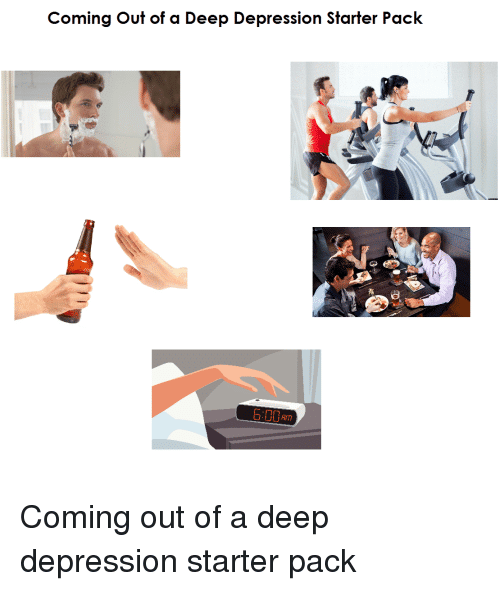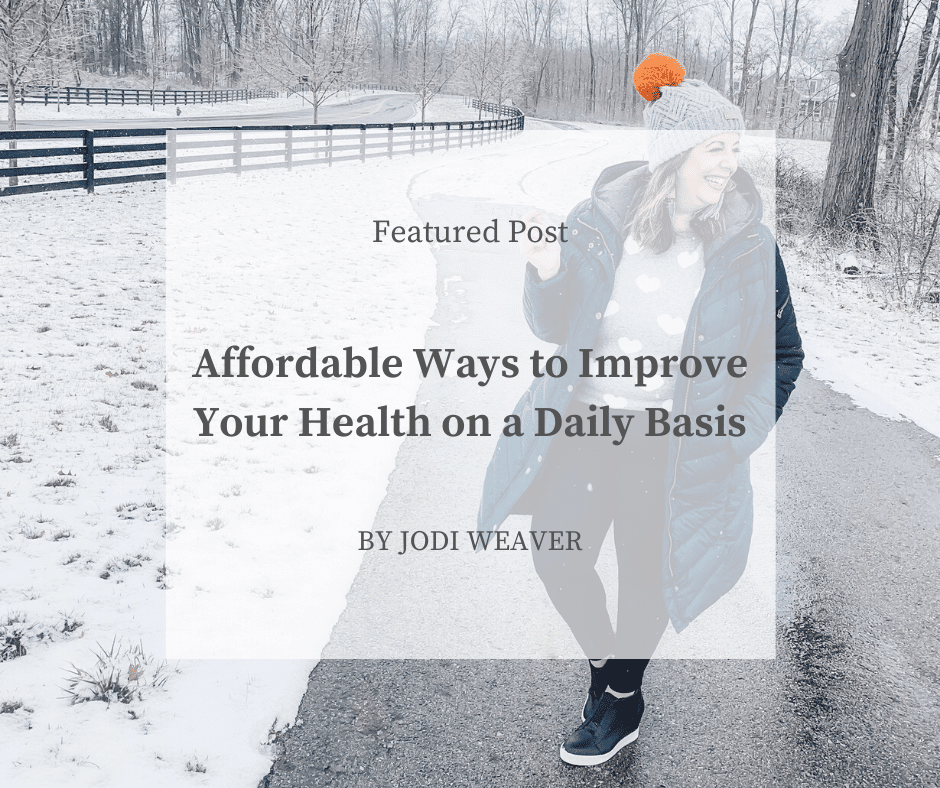Whats The Difference Between Sadness And Depression
Whether youve lost a loved one, moved to a new place, or missed out on a job opportunity, there are plenty of stressful and upsetting events that can get you down. However, the difference between sadness and depression is that sadness usually passes with a little time, while depression is a mood disorder that can appear without any specific cause and last for two weeks or more.
Depression impacts almost every part of your life, interfering with how you think, feel, and go about your daily activities like sleeping, working, and socializing. Some common symptoms of depression include:
- Feeling empty
- Difficulty sleeping or sleeping more than normal
- Changes in appetite or weight
- Feelings of hopelessness
- Loss of interest in hobbies or activities
- Irritability or restlessness
- Aches and pains without clear physical causes
- Thoughts of death or suicide
To be diagnosed with depression, these symptoms must be present nearly all day, every day for at least two weeks.
Personal Factors That Can Lead To Depression
Personal factors that can lead to a risk of depression include:
- family history depression can run in families and some people will be at an increased genetic risk. However, this doesnt mean that a person will automatically experience depression if a parent or close relative has had the condition.
- personality some people may be more at risk because of their personality, particularly if they tend to worry a lot, have low self-esteem, are perfectionists, are sensitive to personal criticism, or are self-critical and negative
- serious medical conditions these can trigger depression in two ways. Serious conditions can bring about depression directly or can contribute to depression through the associated stress and worry, especially if it involves long-term management of a condition or chronic pain
- drug and alcohol use can both lead to and result from depression. Many people with depression also have drug and alcohol problems.
How Can I Support My Mental Health
Having depression or anxiety isnt a sign of weakness and theres no need to feel embarrassed. Keep active in your community, consider joining a support group and do things that boost your mental wellbeing.
Self-help groups
Meeting other people who understand what youre going through can be helpful, especially if youre feeling isolated or lonely. You can find a local support group by asking your GP, or by contacting Mind, Anxiety UK, SANE or Rethink Mental Illness.
Keep a regular social routine
There are a range of services in the local community where you can meet new people and learn new skills. This will give you something to look forward to, and prevent you feeling isolated or alone. Your local Age UK can help you find an activity or group that will suit your interests.
You May Like: What Is The Phobia Of Bugs
Create A Wellness Toolbox
A wellness toolbox is a set of tools that you can use to help soothe yourself when you are feeling down.
The tools you find most helpful might not work for someone else so it’s important to carefully consider what things can help you feel your best.
Think of things you like to do when you’re happy. Then, when you’re feeling down, try one of those activities.
Cuddling your pet, listening to your favorite music, taking a warm bath, or reading a good book are just a few tools you might find helpful.
Create a list of the activities you might try when you’re feeling bad. Then, choose an activity to try when you’re having a particularly rough time.
How Is Depression And Anxiety Treated

If you broke your leg, you wouldn’t just struggle on without help. You’d get in seen to. Mental health is as important as physical health and can be treated successfully. There are several treatments available often a combination of treatments is needed.
If your symptoms are mild, your GP may take a ‘wait and see’ approach. They may give you some advice on how to cope with symptoms then see if symptoms improve within a few weeks.
Talking treatments
Theres something called ‘talking therapies’ now, which can really help people who are feeling low, anxious or out of sorts.
Talking treatments allow you to talk to a trained professional who can help you manage your thoughts and feelings and the effect they have on your mood and behaviour.
Examples of talking treatments include cognitive behavioural therapy and counselling. They may be one-on-one sessions or in a group environment.
If you are considering talking treatments, be sure to mention any cultural, language or religious needs you have or any hearing or sight problems, so they can be addressed when arranging therapy for you. Talking treatments are effective and available for free on the NHS.
Don’t Miss: What Percent Of The Population Has Depression
How Are Depression And Anxiety Diagnosed
There are no specific tests but your GP may perform some blood tests for other health conditions that share similar symptoms with depression or anxiety.
Your GP will need to get a good picture of the way youre feeling mentally and physically. They will ask you lots of questions about your symptoms and the changes youve noticed.
It can be difficult to think about specific answers on-the-spot but the following suggestions might help you plan ahead for your appointment.
- Make a list of all your symptoms, whether they are worse at certain times of the day or on particular occasions, how long youve had them and their effect on your day-to-day life and relationship with others.
- Explain any circumstances that could be contributing to these symptoms and the way you feel.
- Take a list of all medications you currently take, including any supplements or non-prescription medication.
- Be as open and honest as you can remember anything you say is confidential.
Ways To Beat Depression For The Long Term
Beating depression and coping with depression arent the same. While there are many daily tips and tricks to cope with depression, beating depression implies a long-term resolution of symptoms.
Based on the volumes of research behind depression causes, daily goals may have the most beneficial impact if they:
- promote a sense of meaning, accomplishment, or mastery
- increase the frequency of positive emotions
- help you identify self-defeating or unhelpful thought patterns and behaviors
Keeping these criteria in mind, you can start to develop some daily routines to help you beat depression.
Also Check: What Is Binge Eating Disorder Caused By
Dealing With The Winter Blues
For some people, the reduced daylight hours of winter lead to a form of depression known as seasonal affective disorder . SAD can make you feel like a completely different person to who you are in the summer: hopeless, sad, tense, or stressed, with no interest in friends or activities you normally love. No matter how hopeless you feel, though, there are plenty of things you can do to keep your mood stable throughout the year.
Overcoming Chronic Depression: My Story
My life really changed when I met the field of Yoga or Qi Qong .
For these ancestral practices, ALL diseases are only due to a lack of vital energy.
Depression is caused by a major energy imbalance in your body and mind.
Clearly, you run out of vital energy when you allow your body and mind to overcome serenely the hardships and challenges of life.
I also discovered a method to measure my vital energy level with an extremely SIMPLE breathing test.
You will do it right now …
Sit comfortably, watch your breath without changing it, and get a stopwatch .
Then, at the end of an expiration , pinch your nose to stop breathing and start the stopwatch.
At the very first sign of a desire to breathe , breathe again and stop the stopwatch.
The score you gwet is of extreme importance! It corresponds to your vital energy level and more specifically to your level of cellular oxygenation.
The more your cells are oxygenated, the higher your overall vital energy!
It’s that simple…
The lower your score, the more intense your depression!
The higher your score, the more joy and happiness increase everyday…
The creator of this test, a yogi and Russian doctor often said “Below 40 seconds, life is lived in suffering”.
When I was depressed, my score was 9 seconds! Believe me, the physical and psychic suffering were VERY intense…
Fortunately, I learned how to increase my score, which mean an increase in my vital energy!
At 30 seconds, the anxiety disappeared at once.
Read Also: What Causes Stress And Anxiety
Improve Your Sleep Hygiene
Sleep and mood are intimately related. A 2014 study found that 80% of people with major depressive disorder experience sleep disturbances.
But, you might feel like you just can’t fall asleep. Or perhaps you struggle to get out of bed because you feel exhausted all the time.
Good sleep hygiene could be key to improving the quality and quantity of your sleep.
Turn off electronics at least an hour before you go to bed. Use dim light to read a book or engage in another relaxing activity.
Only use your bed for sleep and sexual activity. Doing work in bed, or even in your bedroom, can cause you to associate your bed with stress, rather than relaxation.
Whats The Difference Between Grief And Depression
Given that the primary symptom associated with depression is sadness, it can be easy to think of grief or bereavement as depression. But grief is a natural response to specific experiences, such as the end of a relationship or the death of a loved one. While you might feel regret or remorse, and you might withdraw from usual activities if you are experiencing grief, youre unlikely to feel the overwhelming sense of worthlessness, thoughts of self-harm or suicide, and other symptoms of depression. Another important difference is that in grief, painful feelings usually come in waves and are often mixed with positive memories.
American Family Physician
You May Like: How Many Teenagers Have Depression
Meet Yourself Where You Are
Depression is common. It affects millions of people, including some in your life. You may not realize they face similar challenges, emotions, and obstacles.
The key to navigating depression is to be open, accepting, and loving toward yourself and what youre going through.
Every day with this disorder is different. Its important to take your mental health seriously and accept that where you are right now isnt where youll always be.
Getting Out Of A Funk: How To Help Yourself Through Depression

Everyone has off days where they feel tired, irritable, and sad. Its normal to feel sadness as a response to challenging life events, loss, or changes, but sometimes these feelings can stick around for a while if left unaddressed and make it difficult for you to get through each day.
Heres how you can tell when youre in a funk or maybe even experiencing a mild depression as well as what you can do to help yourself feel better.
Recommended Reading: How To Help A Family Member With Bipolar Disorder
What Are The Types Of Major Depression
There are several types of depressive disorders:
Causes And Risk Factors
Depression is not a mood you can just get over. It is a disease in which the brain ceases to register pleasurable activities, says Angelino. Indeed, MRI studies with depressed people have found changes in the parts of the brain that play a significant role in depression.
Women are about twice as likely as men to be diagnosed with depression. Youre also more likely to develop depression if you are between ages 45 and 64, nonwhite, or divorced, and if you never graduated high school, cant work or are unemployed, and dont have health insurance. Other risks for depression include factors such as these:
- Experiencing stressful events in your life, such as losing your job, having problems in your marriage, major health problems, and/or financial challenges.
- Having a bad childhood, such as one involving abuse, poor relationships with your parents, and/or your parents own marital problems.
- Certain personality traits, such as getting extremely upset when youre stressed.
- A family history of depression, which can increase your own risk three or four times.
Depression is far more common than you might think, with nearly one out of 10 adults depressed at any time, about half of them severely.
Recommended Reading: Is There A Cure For Schizophrenia
Symptoms Of Severe Depression
What are the symptoms of severe depression?
- Loss of interest in activities that used to be enjoyable
- Persistent thoughts of something bad happening
- Thoughts of death or suicide or suicide attempts
- In very severe cases, psychotic symptoms
- Inability to take care of oneself, such as eating, bathing, or fulfilling family or work responsibilities
Although you might feel that there’s no hope, talk to your doctor about treatment options. Even severe depression symptoms can be treated.
What Are The Signs And Symptoms
Major depression symptoms vary from person to person. To receive a diagnosis of major depressive disorder, some of these signs and symptoms must be present for at least two weeks. Anyone who has questions should consult their doctor.
- Continued feelings of sadness, hopelessness, pessimism, emptiness
- Fatigue, lack of energy
- Insomnia or other sleep issues such as waking up very early or sleeping too much
- Anxiety, irritability, restlessness
- Lack of interest or joy in hobbies and activities
- Changes in appetite, leading to weight loss or weight gain
- Moving, talking, or thinking more slowly
- Trouble concentrating, thinking clearly, or making decisions
- Vague aches and pains, such as headaches, joint pain, back pain, or digestive problems
- Thoughts of death or suicide, or suicide attempts
You May Like: How To Control Breathing During A Panic Attack
Put Your Thoughts On The Witness Stand
Once you identify the destructive thoughts patterns that contribute to your depression, you can start to challenge them with questions such as:
- Whats the evidence that this thought is true? Not true?
- What would I tell a friend who had this thought?
- Is there another way of looking at the situation or an alternate explanation?
- How might I look at this situation if I didnt have depression?
As you cross-examine your negative thoughts, you may be surprised at how quickly they crumble. In the process, youll develop a more balanced perspective and help to relieve your depression.
How To Get Out Of Deep Depression Naturally
Caution : You must consult your doctor for your health. This page presents only a personal and alternative point of view which should not be considered as an attempt to prescribe medicine.
On this page, you will discover how to overcome the deep depression in a completely natural way, that is to say without any anti-depressant medication or anxiolytic.
I am neither a doctor nor a psychiatrist, but I went through a severe depression myself during my adolescence.
I know exactly what you are going through right now, and I know how much you are suffering from having lived through it for many years.
Be rest assured that it is VERY easy to get out of depression when you know exactly WHAT to do.
I will explain this to you now!
You May Like: How To Calm Down A Person Having A Panic Attack
Assess The Parts Instead Of Generalizing The Whole
Depression can tinge recollections with difficult emotions. You may find yourself focusing on things that are unhelpful or perceived as difficult.
Try to stop this overgeneralization. Push yourself to recognize the good. If it helps, write down what was meaningful about the event or day. You can track what you achieved that day, and which activities were enjoyable.
Seeing the weight youre giving to one thing may help you direct your thoughts away from the whole and to the individual pieces that were helpful.
What Is Crippling Depression Or Major Depressive Disorder

Dont confuse yourselves crippling depression is just a slang term used for clinical depression . When someone says, I may have crippling depression, it may mean that they feel sad and cannot function well every day.
This type of depression needs the medical diagnosis of a psychiatrist, attention of a mental health professional, support of loved ones, lifestyle changes, and even medication. Here is more data you should know about this type of depression.
Read Also: How To Treat Anxiety Depression
Don’t Miss: How To Treat A Bipolar Child
Knowing How Depression Works Can Help You Better Support Loved Ones Who Are Struggling
If youve never experienced clinical depression, it is hard to understand what it is like. Well-intentioned people will say things like, just think positive, or just snap out of it. Though they may not say it out loud, some people think a person with depression is just being lazy, or just trying to get attention. However, major depressive disorder is a serious psychological condition.
Before I became a clinical psychologist, I experienced a depressive episode after a divorce. The depression completely hijacked my thinking and feelings, and I even seriously contemplated suicide. A family member encouraged me to seek psychotherapy, and it really helped. This is what inspired me to become a psychologist, and I eventually became a board-certified clinical psychology professor. Through my research, writing, and international speaking, one of my personal life missions is to validate peoples struggles and walk with them on the path to recovery from depression.
If you know someone who seems depressed, it can be very difficult to understand, and it can be hard to know what to do. With more knowledge about how depression works, youll be in a better position to offer the most helpful support.